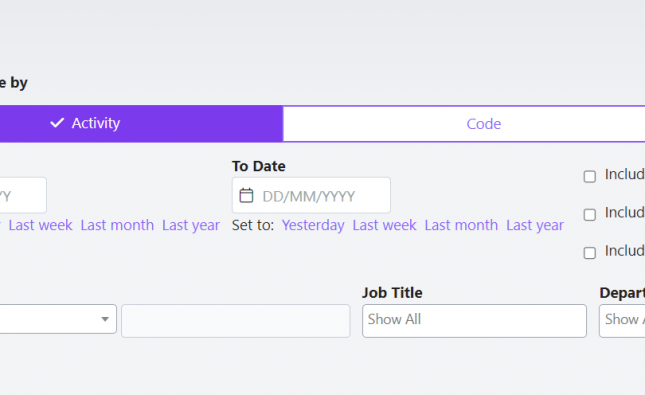Sickness absence is a thorn in the side of the UK economy, each year resulting in organisations losing an estimated £17bn and 190m working days, equating to an average 6.5 days off sick per employee each year.
Most organisations have a sickness absence policy in place to promote the welfare of employees, but the role of the manager in enforcing the policy with fairness and consistency is crucial, enabling issues to be resolved at the earliest possible moment to reduce the impact of sickness absence.
Our Manager’s Guide to Sickness Absence eLearning course includes a number of topics to help managers enforce sickness absence policies, including setting and following formalised processes, the impacts of different management styles on employees, and setting and monitoring attendance targets.
The course also details the 8 good practise elements of managing sickness absence, shown below in shortened form to help managers to manage sickness absence the right way:
- 1: Reporting absence and staying in touch – by ensuring employees report absences at the earliest opportunity, managers can organise cover and prioritise workload, and also discuss and address any ongoing concerns with the employee at an early stage
- 2: Recording and monitoring absence – by recording data related to absences, managers can identify and monitor patterns of absence, and in turn help businesses to understand, and hopefully remedy, the causes of absences
- 3: Welfare contact – this contact, during the employee’s period of absence, gives managers an opportunity to discuss the nature of the employee’s absence, their potential return to work date, and any support they may need to return to work healthy, such as flexible working or a workload overview
- 4: Return to work contact – when an employee returns to work after sickness absence, a manager should take the opportunity to ensure the employee is fit for work and that their return won’t lead to further absences, as well as identify any other potential issues before they escalate
- 5: Absence triggers and policy stages – certain levels of absence should trigger a Formal Stage 1 meeting, in which a manager can offer support, set attendance targets and review periods, and formally raise concern over the level of absence. If absence continues to be an issue, then policies should progress the issue to Formal Stage 2 and Formal Stage 3 meetings
- 6: Occupational health referral – by referring employees to occupational health at the earliest opportunity where medical advice is required, managers will be able to make informed decisions about dealing with sickness absences
- 7: Special types of absence – certain types of absence, such as disability-related absence, pregnancy related absence, accidents at work and work-related illness, stress-related illness, mental ill-health and terminal illness, require managers to apply special consideration to ensure compliance with discrimination and health and safety laws
- 8: Ill health retirement – certain levels of incapacity can result in ill health retirement, which usually need to be certified by an independent occupational health practitioner and authorised by the relevant pension fund.
Our Manager’s Guide to Sickness Absence eLearning course contains the above elements in a full detailed module, as well as an overview of sickness absence policy and modules to support managers through each of the three Formal Stages.
With over 75 minutes of high quality content, it is designed to give your managers the skills and tools they need to minimise sickness absence while promoting the health, safety and welfare of employees.


